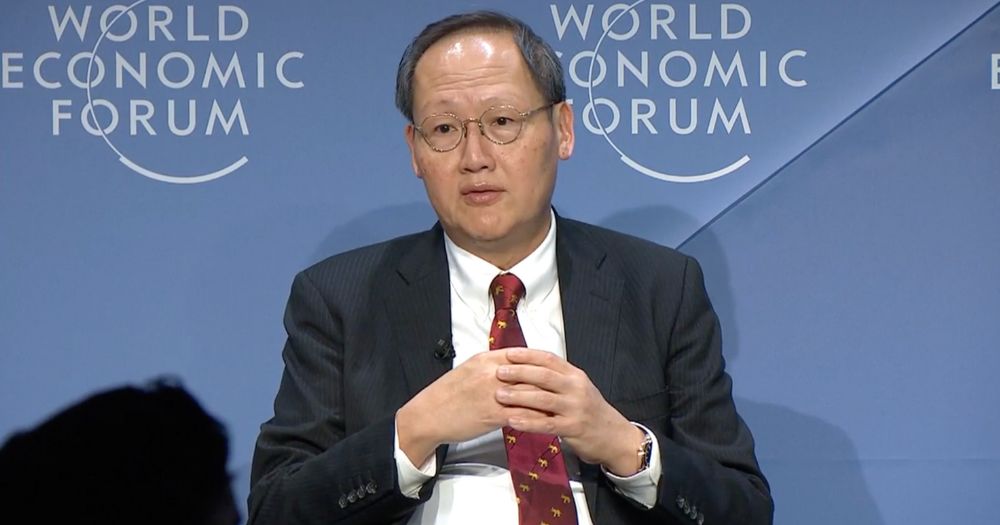Governments have an important role to play in the fight against climate change by acting as a "catalyst" and "enabler" of sustainable solutions, said Manpower Minister Tan See Leng at the World Economic Forum 2024.
Tan, who is also Second Minister for Trade & Industry, spoke during the session titled “First Movers for Frontier Clean Technologies”, at the forum in Davos, Switzerland, on Jan. 16.
He shared the stage with the U.S. Special Presidential Envoy for Climate John Kerry, among other panellists.
Catalyst & enabler roles of government
Tan emphasised that the government can perform the role of an "catalyst and an enabler" for sustainability initiatives in response to "demand signals" across the economy.
By partnering with industries to develop low-carbon technologies and markets, the government can channel market demand where it’s needed.
Singapore joined the First Movers Coalition (FMC) as a government partner on May 26, 2022.
Since Nov. 2021, the FMC has provided a platform for companies to create early markets for clean energy technologies to combat the climate crisis.
In his own speech, Kerry said that the FMC has managed to obtain 110 specific purchasing agreements representing US$16 billion in commitments, the "largest private demand signal for clean technologies in history".
Developing one of the first direct ammonia combustion power plants in the world
Tan also shared an example of the government acting as an "enabler". He referred to an end-to-end Request for Proposal (RFP) for low-carbon ammonia solutions in late 2023. An RFP is a document that solicits proposals from potential suppliers.
Six consortiums that expressed interest by Oct. 2023 are currently being considered, and an update is expected by the end of Jan. 2024, he said.
"It would move Singapore another step closer to being one of the first countries in the world to test and to deploy a direct ammonia combustion power plant, and to support the holistic assessment of ammonia bunkering for shipping."
The government is also working with ammonia suppliers, shipping lines, storage and technology providers and bunker suppliers to ensure that they are able to scale up the infrastructure to support and cater for ammonia bunkering, for both oceangoing ships and domestic harbour crafts, he said.
Safety procedures, standards and regulations are also being developed for ammonia bunkering.
Sustainable aviation
Singapore also set up the International Centre for Aviation Innovation (ICAI) to advance sustainable aviation technologies in the Asia-Pacific region.
On Jan. 10, the ICAI was established by the Civil Aviation Authority of Singapore to focus on researching sustainable aviation technologies, next-generation air navigation services, automated and smart airports, and unmanned aviation systems.
Singapore is also working with partners Japan and the U.S. to develop "aviation green lanes" throughout the Asia Pacific, which provides a pathway for accelerated emissions reductions.
S’pore’s international collaborations
The host then put Tan "on the spot for 60 seconds", asking how could governments could do more to collaborate, given the successful examples seen in the commercial sector.
Tan said he couldn't speak for all governments, but in Singapore's region at least, the government tries to work with like-minded partners to create a “common platform” to address various sustainability issues, like verifiable carbon credits and rules of origin.
"If we make sure these standards then prevent greenwashing and...other untrustworthy type of transactions. I think it will be a very first, small but very significant step, a giant leap, for all of us,” he said.
He cited another example of a "small step", working with the U.S. under the Indo-Pacific Economic Framework for Prosperity (IPEF), to look at the entire Asean regional grid on a feasibility study to come up with a framework to uplift the people of the Asean region.
While these are small steps, they are also significant milestones, Tan said. He added that "continuity of the government and trust" is important in making progress.
"A lot of times, you find in terms of government, continuity of government is also very important. That consistency in terms of making sure the trust has been built, can actually bring us a lot further."
Singapore carbon tax
Tan also mentioned Singapore’s carbon tax, and acknowledged the country being one of the first in the Southeast Asia region to implement it.
Singapore’s carbon tax was introduced in Nov. 2022. The rates have been increased from S$5 per tonne of emissions to S$25 per tonne in 2024 and 2025.
These rates are expected to increase to S$45 per tonne in 2026 and beyond.
Tan said that Singapore is committed to investing the carbon tax revenue into low-carbon and renewable energy research.
Related story:
Top image from Mothership.

If you like what you read, follow us on Facebook, Instagram, Twitter and Telegram to get the latest updates.



